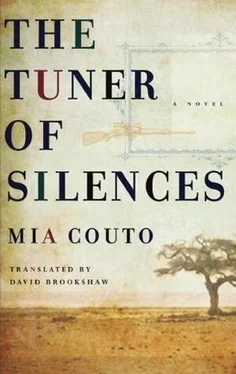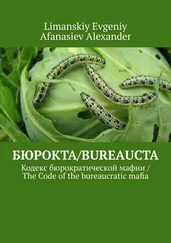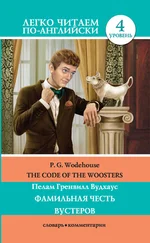I nodded. I didn’t tell her about the crocodile that lived on the banks of the pond. I was afraid she might have second thoughts. At that moment, she began to rub creams into her body. Intrigued, I surprised her with a question:
— Do you want me to go and get a bucket of water?
— Water? What for?
— Aren’t you washing yourself?
Her sadness was suddenly shattered: the Portuguese woman laughed out loud, and almost offended me. Wash? What she was doing was applying creams to herself as protection against the sun. Maybe she’s got some illness, I thought. But no. The woman said that nowadays, sunlight was poisoned.
— Not here, lady, not here in Jezoosalem.
The Portuguese woman leaned on a wooden beam, closed her eyes and began to sing. Once again, the world escaped me. Never before had I heard a melody like that, flowing from human lips. I’d heard birds, the breezes and rivers, but nothing resembling her tones. Maybe in order to save myself from this lullaby, I asked:
— Pardon me, but are you a whore?
— What?
— A whore —I said slowly and deliberately.
At first astonished, and then amused, the woman lowered her head as if deep in thought, and in the end, she answered with a sigh:
— Maybe, who knows?
— My father says all women are whores. .
She seemed to smile. Then she got up and, giving me an intense look, her eyes half-closed, exclaimed:
— You’re like your mother.
A kind of flood rushed over my inner self as her gentle voice spread out and covered my entire soul. Some time was needed before I could ask myself: did this foreign woman know Dordalma? How and when had the two women met?
— Begging your pardon, but do you. .
— Call me Marta.
— Yes, lady.
— I know your family’s story, but I never met Dordalma. And you, did you ever know your mother?
I shook my head, as slowly as my sadness allowed me to control my own body.
— Do you remember her?
— I don’t know. Everyone says I don’t.
I wanted to ask her to sing once more. For there was something I was now sure of. Marta wasn’t a visitor: she was an emissary. Zachary Kalash had predicted her arrival. As for me, I had a suspicion: Marta was my second mother. She had come to take me home. And Dordalma, my first mother, was that home.

The shadows were already lengthening when I accompanied Marta to the lake where the herons could be found. I helped her carry her photographic equipment and chose the paths down the slope that were less steep. Every so often, she would pause in the middle of the path, and with both hands, gather her hair together at the nape of her neck as if she wanted to avoid its obscuring her field of vision. Then, she would once again survey the firmament. I remembered Aproximado’s words: “He who seeks eternity should look at the sky, he who seeks the moment, should look at the cloud.” The visitor wanted everything, sky and cloud, birds and infinities.
— What magnificent light —she repeated, ecstatic.
— Aren’t you scared it might be poisoned?
— You can’t imagine how much I need this light at this precise moment. .
She spoke as if in prayer. For me, the magnificent light was that which emanated from her movements. Nor had I ever seen such smooth, abundant hair. But she was talking of something that had always been there, and that I had never noticed: the light that radiates not from the sun but from places themselves.
— Back there our sun doesn’t speak.
— Where’s “there,” Miss Marta?
— Back there, in Europe. Here, it’s different. Here the sun moans, whispers, shouts.
— Surely —I commented delicately, — the sun is always the same.
— You’re wrong. There, the sun is a stone. Here, it’s a fruit.
Her words were foreign even though they were spoken in the same language. Marta’s idiom was of another race, another sex, another type of smoothness. The mere act of listening to her was, for me, a way of emigrating from Jezoosalem.
At one point, the Portuguese woman asked me to turn away: she took off her blouse and let her skirt fall to the ground. Then, she went for a swim in her underwear. With my back to the river, I noticed Ntunzi, hiding in the undergrowth. His signal suggested that I should pretend I hadn’t seen him. From his hiding place, my brother’s eyes bulged with desire as he indulged his fire. For the first time, I saw Ntunzi’s face go up in flames.

My father guessed right away that we hadn’t carried out his instructions. To our astonishment, he didn’t get angry. Was it that he understood our plausible excuses, did he condone our reticence, the clouds that blocked out the sun? He went and got changed into his best clothes, put on the same red tie he sported on his visits to Jezebel, the same dark shoes, the same felt hat. He took each of us by the hand, and dragged us along with him to the haunted house. He knocked on the door, and the moment the Portuguese woman answered it, he blurted out:
— My sons have disobeyed me for the first time. .
The woman contemplated him serenely and waited for him to continue. Silvestre lowered his voice, softening his initial harsh tone:
— I’m asking you a favour. On behalf of myself and my two legitimate offspring.
— Come in. I’m afraid I don’t have any chairs.
— We’re not going to stay long, lady.
— My name’s Marta.
— I don’t call a woman by her name.
— What do you call her by, then?
— I won’t have time to call you anything. Because you’re leaving here right now.
— My name, Mister Mateus Ventura, is like yours: a kind of illness inherited from birth. .
On hearing his former name, my father was struck by an invisible whiplash. His fingers squeezed my hand, as tense as a crossbow’s arc.
— I don’t know what you’ve been told, but you’re mistaken, my dear lady. There’s no one by the name of Ventura here.
— I shall leave, don’t worry. What brought me to Africa is now almost over.
— And may I know what brought you here?
— I came looking for my husband.
— Let me ask you something, lady: you came so far just to look for your husband?
— Yes, do you think I should be doing more?
— A woman doesn’t go looking for her husband. A woman stays and waits for him.
— Well in that case, maybe I’m not a woman.
I looked at Ntunzi in despair. The stranger was stating that she wasn’t a woman! Was she telling the truth, and therefore contradicting the maternal feelings that she had inspired?
— Before setting out on my journey, I heard your story —Marta declared.
— There is no story, I’m here enjoying a short holiday in this exclusive retreat. .
— I know your story. .
— The only story, my dear lady, is the story of your departure, back to where you came from.
— You don’t know me, a woman isn’t only motivated by a husband. In life, there are other loves. .
This time, my father was decisive in stopping her, by raising his arm. If he was allergic to anything, it was to conversations about love. Love is a territory where orders can’t be issued. And he had created a little hideaway which was governed by obedience.
Читать дальше













